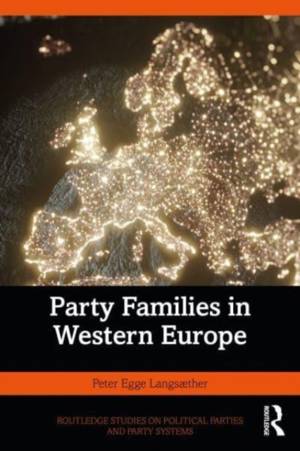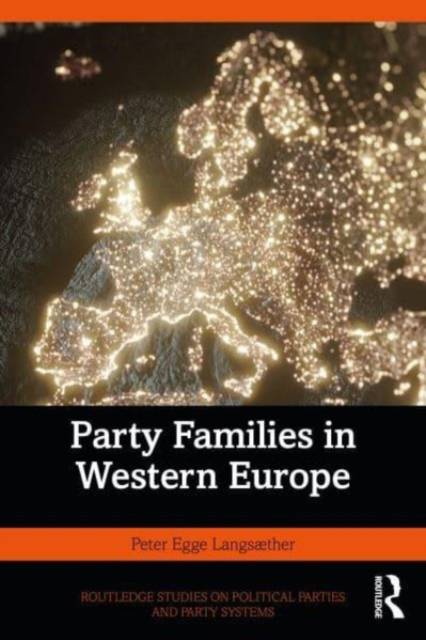
- Afhalen na 1 uur in een winkel met voorraad
- Gratis thuislevering in België vanaf € 30
- Ruim aanbod met 7 miljoen producten
- Afhalen na 1 uur in een winkel met voorraad
- Gratis thuislevering in België vanaf € 30
- Ruim aanbod met 7 miljoen producten
Omschrijving
This comprehensive and comparative book makes clear what party families are and, in doing so, helps categorise and make sense of parties in different countries. It describes the ideology of the families in Western Europe as well as classifying political parties accordingly. Furthermore, the book examines who the party families' supporters are in terms of their social background and political values. What role do class, education, and religion play in the 21st century?
Finally, the book provides a discussion of the degree to which the concept of party families is still meaningful in the 21st century and how it needs to be studied comparatively and comprehensively. Is party family still valid as a conceptual device to classify and compare parties across countries in Western Europe?
This text will be of key interest to scholars, students, and practitioners working in the field of political behaviour, political parties and party politics, policy studies, and more broadly comparative and European politics.
Specificaties
Betrokkenen
- Auteur(s):
- Uitgeverij:
Inhoud
- Aantal bladzijden:
- 260
- Taal:
- Engels
- Reeks:
Eigenschappen
- Productcode (EAN):
- 9781138336964
- Verschijningsdatum:
- 21/07/2023
- Uitvoering:
- Paperback
- Formaat:
- Trade paperback (VS)
- Afmetingen:
- 156 mm x 234 mm
- Gewicht:
- 390 g

Alleen bij Standaard Boekhandel
Beoordelingen
We publiceren alleen reviews die voldoen aan de voorwaarden voor reviews. Bekijk onze voorwaarden voor reviews.











